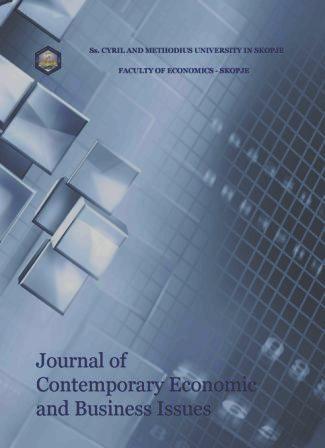DETERMINANTS OF NON-PERFORMING LOANS AND THE RELATIONSHIP WITH MACROECONOMIC FACTORS: EVIDENCE FROM SOUTHEASTERN EUROPE
Клучни зборови:
Non-performing loans, macro financial linkages, Southeast Europe, econometric modeling, panel analysisАпстракт
Despite significant progress in this area, the problem of non-performing loans continues to receive central attention in the banking systems of the SEE countries after the 2008/2009 crisis, reducing the profitability and resource utilization of banks. The purpose of this paper is to investigate the determinants of non performing loans and their effect on the macroeconomic situation in Southeast Europe. First, in order to test the relationship between credit risk and certain balance sheet and macroeconomic indicators, we create a model that uses annual panel data for 5 Southeast European countries for the period 2008-2017. The results show that profitability has a negative impact on nonperforming loans, while credit growth and capitalization rate have a positive and statistically significant impact on the nonperforming loan portfolio. The second part of the econometric analysis consists of examining the cointegration, i.e. long-term and short-term relationships between non-performing loans and macroeconomic variables. The results imply that in conditions of higher unemployment, slower economic growth and falling prices, credit risk increases in the long run. Such conclusions are robust when using alternative valuation methods on the longterm relationship. However, in the short run, only GDP has an inverse statistically significant relationship with nonperforming loans, while unemployment and inflation have proved to be statistically insignificant, although the relationship between them and nonperforming loans has the same direction as in the long- run model. Such conclusions are generally consistent with both the theory and the numerous studies that have been done on this topic.
Референци
Преземања
Издание
Секција
Дозвола
Authors retain copyright of the published papers and grant to the publisher the non-exclusive right to publish the article, to be cited as its original publisher in case of reuse, and to distribute it in all forms and media.
Authors are permitted to deposit publisher's version (PDF) of their work in any repository, personal and institutional websites, but full bibliographic information (authors, titles, volume, issue etc.) about the original publication must be provided.

